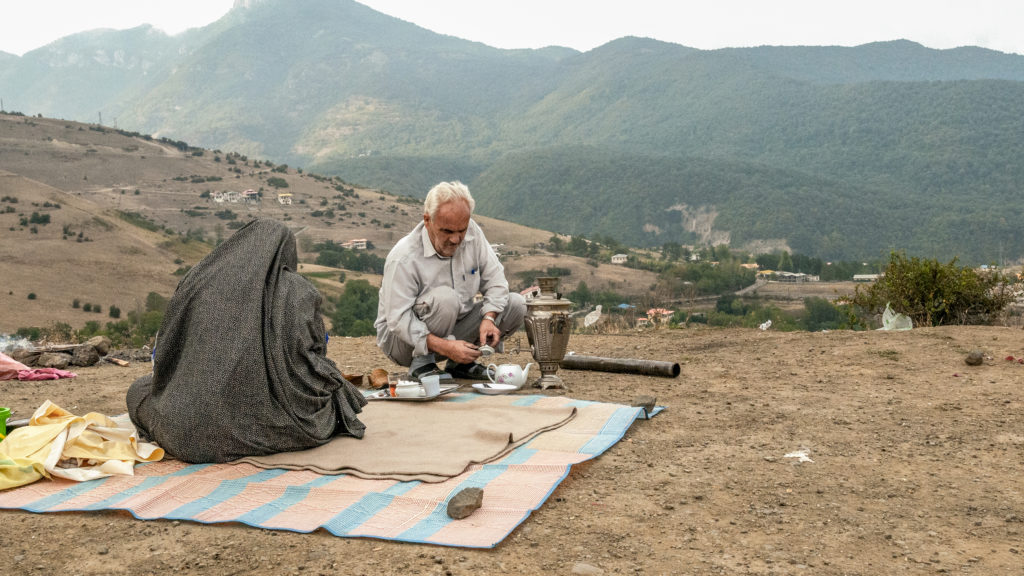Cloning is no longer merely in the realm of science fiction. President Bush has spoken out against cloning. Christopher Reeve and other celebrities say cloning could cure diseases. Recently Severino Antinori, an Italian fertility specialist, claimed three women under his care were pregnant with cloned embryos, but experts doubt his claim. The Senate is expected to take up legislation on cloning sometime during June.
And, religious groups, theologians and bioethicists have joined the contentious public debate, staking out their positions and hoping to influence its outcome.
The debate brings to light the questions raised by advances in biotechnology and medicine: What does it mean to be human? When does human life begin? Where should the line be drawn between finding treatments for horrible diseases and treating human life as a commodity?
These issues are being heatedly debated as the Senate considers dueling bills on cloning. On April 30, Sens. Dianne Feinstein, D-Calif., Edward Kennedy, D-Mass., Arlen Specter, R-Pa., and Orrin Hatch, R-Utah, introduced a bill to ban human reproductive cloning (cloning babies) but permit “therapeutic” cloning (for medical research) if the research is reviewed by hospital or university ethics committees.
Another bill, sponsored by Sens. Sam Brownback, R-Kan., and Mary Landrieu, D-La., would ban both human reproductive and research cloning.
Point of contention
Virtually all religious leaders support a ban on human reproductive cloning. Research cloning is the point of contention.
Like embryonic stem cell research, cloning uses embryos to conduct research aimed at treating or curing diseases and disabilities like diabetes, Parkinson’s Disease and spinal chord injury. What sets cloning apart from stem cell research is this: Stem cell research uses “discarded” embryos from in vitro fertilization clinics. Cloning creates embryos for research purposes. These embryos are destroyed so stem cells can be harvested for research. This is what makes research such a divisive issue.
At the heart of the debate is the definition of the human embryo. In February, the Pew Forum on Religion and Public Life held a forum on “the moral status of the human embryo” to explore the issue.
There, medical ethicist Kevin Fitzgerald of Georgetown University Medical Center, argued that “At one time, all of us were embryos. … If the embryos had been destroyed, we would not be here.”
But, Laurie Zoloth, a bioethicist and director of Jewish studies at San Francisco State University, disagreed with Fitzgerald. “All of us were embryos, but most embryos … are not persons and will never be persons.” Zoloth compared being an embryo to being a corpse. She said that since everyone will die one day, everyone is a potential corpse, “yet we don’t treat each other like corpses.”
Last December, Cardinal Anthony Bevilacqua, chairman of the Committee for Pro-Life Activities of the U.S. Conference of Catholic Bishops, urged the Senate to ban human cloning.
“Creating human life … by cloning should be condemned because it reduces human beings to mere byproducts of a manufacturing technique,” he said. “When cloning is done to pursue medical research, the reduction of human life to a mere instrument is even more complete. Even if medical benefits could be derived from such destruction, it is never morally permissible to achieve good ends through evil actions.”
A year ago, the Southern Baptist Convention adopted a resolution calling for a ban on both human reproductive and research cloning.
“Biblical witness declares that children are a gift from the Lord and are to be the offspring of a husband and wife, not the result of asexual replication,” resolution said.
For their part, bishops of the Orthodox Church in America have issued a statement expressing “firm opposition to creation of cloned embryos, either for reproductive purposes or so-called therapeutic purposes.” While in March, Jaydee Hanson of the United Methodist Board of Church and Society urged the Senate to pass the Brownback bill.
Opposition to cloning crosses “liberal/conservative lines,” said Nigel Cameron, a bioethicist and dean of Christian Worldview — an evangelical think tank. “The biotech industry, seeking huge profits, is pitted against people of conscience on both the right and the left,” he said.
And William Sinkford, president of the Unitarian Universalist Association of Congregations—one of the most liberal religious bodies—has issued a statement opposing cloning. “I am opposed to human cloning for any purpose. Cloning turns human life and human reproduction into a commodity. Morality must come before profits.” Sinkford spoke for himself, not the denomination, which is expected to adopt a resolution on cloning at its General Assembly in Quebec in June.
The United Church of Christ (UCC) opposes reproductive cloning but is not categorically opposed to research cloning. In a letter to Senate leaders, Pat Conover, a UCC executive, urged the Senate “to pursue a course that would create … broad public discussion (of cloning).” Conover said the UCC believes “all life deserves respect” but that “we distinguish between human life and the human person. It leads us to the position that research on human pre-embryos … should be allowed for its potential to contribute to the overcoming of disease.”
In April, the Union of Orthodox Jewish Congregations of America (UOJCA) issued a statement supporting the Feinstein legislation. In March the UOJCA and the Rabbinical Council of America voiced support for research cloning.
But, a cautionary word about the heated rhetoric of the debate was issued at the Pew Forum by Ronald Cole-Turner, professor of theology and ethics at Pittsburgh Theological Seminary.
“Despite efforts to ban cloning, human reproductive cloning is inevitable given enough time. Will the cloned children of the future read about the repugnance that greets cloning and see that as a rejection of the cloned? “We need to be more circumspect in our rhetoric that denounces technologies that we don’t like, because we may end up denouncing human beings.” (Religion News Service)





Share with others: